Exploring the Versatility of Fluid Bed Dryers from Food to Chemicals
Fluid bed dryers are advanced drying systems that utilize the principle of fluidization to efficiently and uniformly dry various substances. The versatility of these dryers allows their application in a wide range of industries, including food processing, pharmaceuticals, and chemicals.
The equipment works by introducing hot air or gas into the solid particulates to make them behave like fluids. This results in higher upward drag forces and lower gravitational force on the particles.
Applications of Fluid Bed Dryers
Fluid bed dryers find extensive use in different industries due to their adaptability to diverse materials.
Food Industry
In the food industry, fluid bed dryers are employed for drying a wide range of products such as grains, cereals, fruits, vegetables, and spices. The gentle drying process helps preserve the nutritional content, flavor, and color of the food while removing excess moisture.
Fluidized bed dryers support a variety of value-added processing phases that are common in food products. They provide gentle, even and fast drying for food ingredients such as raw grains, seeds, granules, proteins, dairy, sugars, spices, extracts, and more.
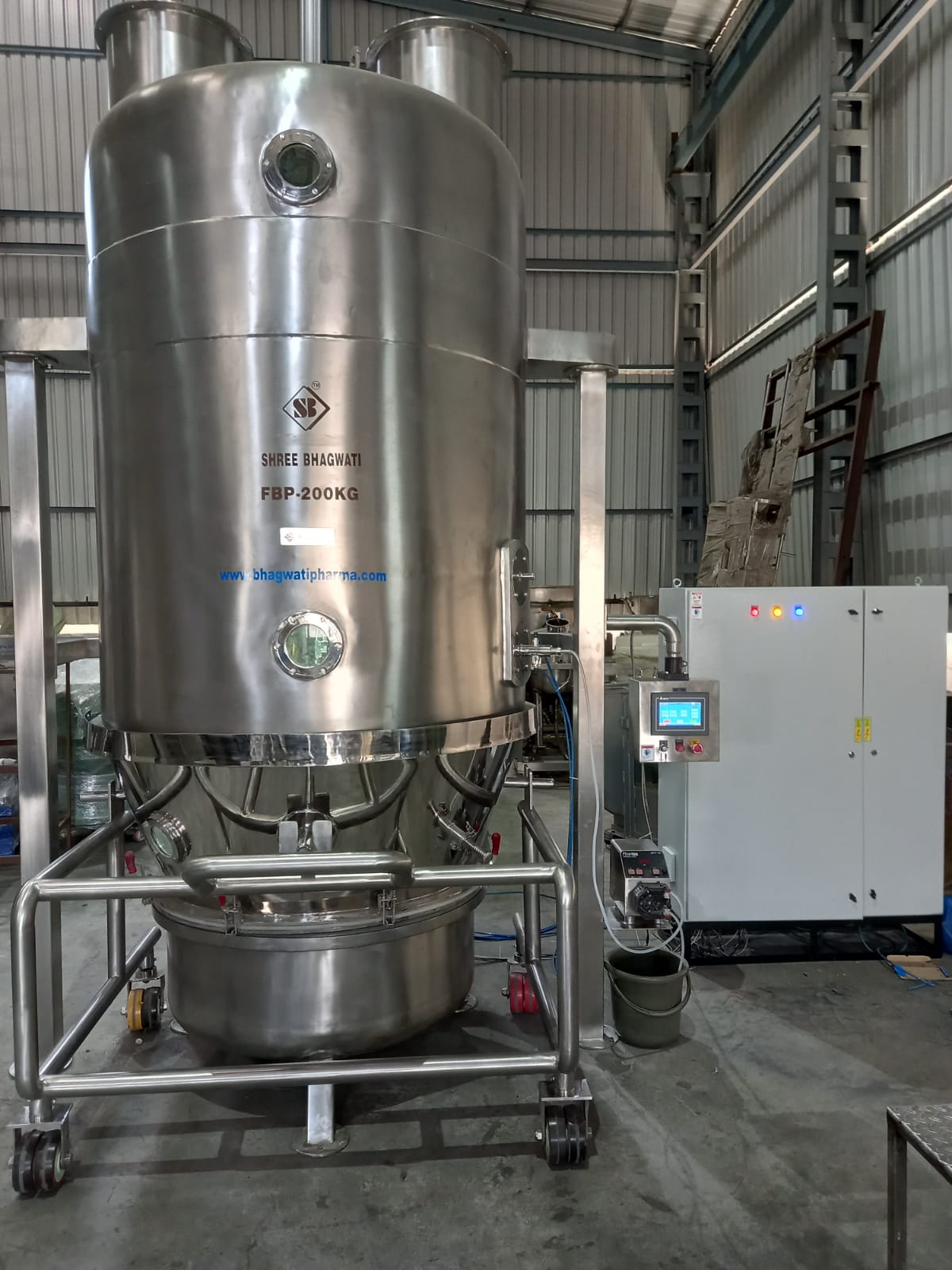
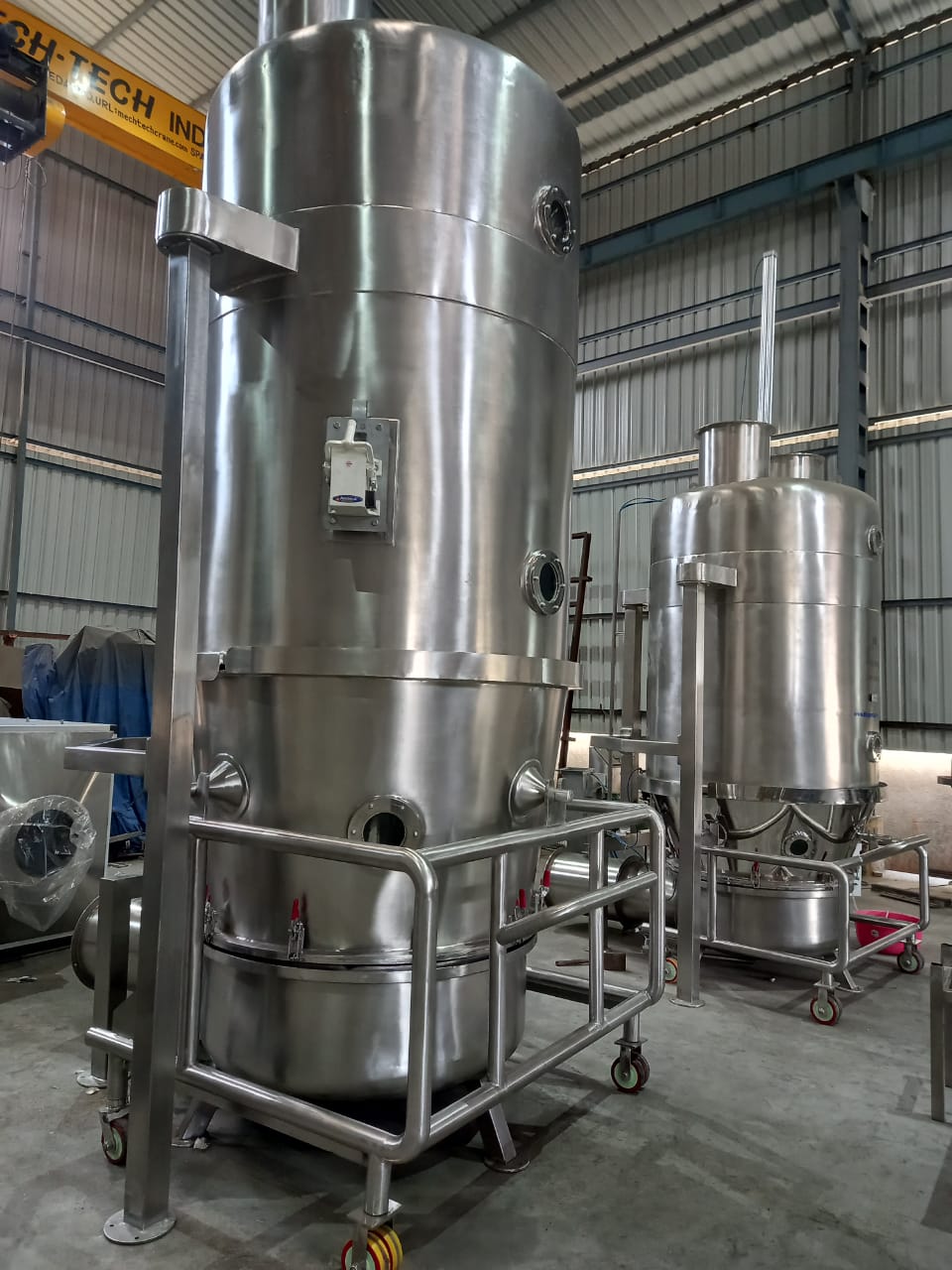
The high rate of heat and mass transfer that occurs with a fluid bed dryer results in more efficient drying than possible with traditional ovens or vacuum dryers. This enables the use of shorter cycle times to achieve the same level of drying with lower energy consumption. Additionally, the sanitary design of the machine with few moving parts, continuous and radius welds, and open interior access improves cleaning processes, allowing for CIP and GMP systems to be implemented to maintain consistent product quality for pharmaceutical applications.
Chemical Industry
The chemical industry extensively utilizes fluid bed dryers for drying and cooling various chemical compounds, including powders, crystals, and granules. These dryers offer precise control over the drying parameters, ensuring the desired moisture content is achieved while maintaining the integrity of the chemicals.
Whether in the mining or pharmaceutical industries, fluid bed dryers can handle heat-sensitive materials. This is because the intimate air-to-material contact promotes rapid and efficient heat transfer without degradation reactions or clumping.
Fragile agglomerations of food products like salt, milk powder, potato granules or “instant” type foods require minimized contact to preserve their shape and integrity. In addition, they often contain heat sensitive ingredients and additives, making it important for them to remain free flowing in a drying process.
Fluid bed dryers use vibrating action to maintain a constant flow of material through the drying zone and eliminate clogging. As a result, they are able to support multiple heating and cooling steps without impacting the product’s texture or appearance. Moreover, the continuous process flow makes it much faster than batch drying. This makes it an ideal choice for chemical, mining and pharmaceutical applications. A wide range of equipment options allows fluidized beds to be adapted to specific needs.
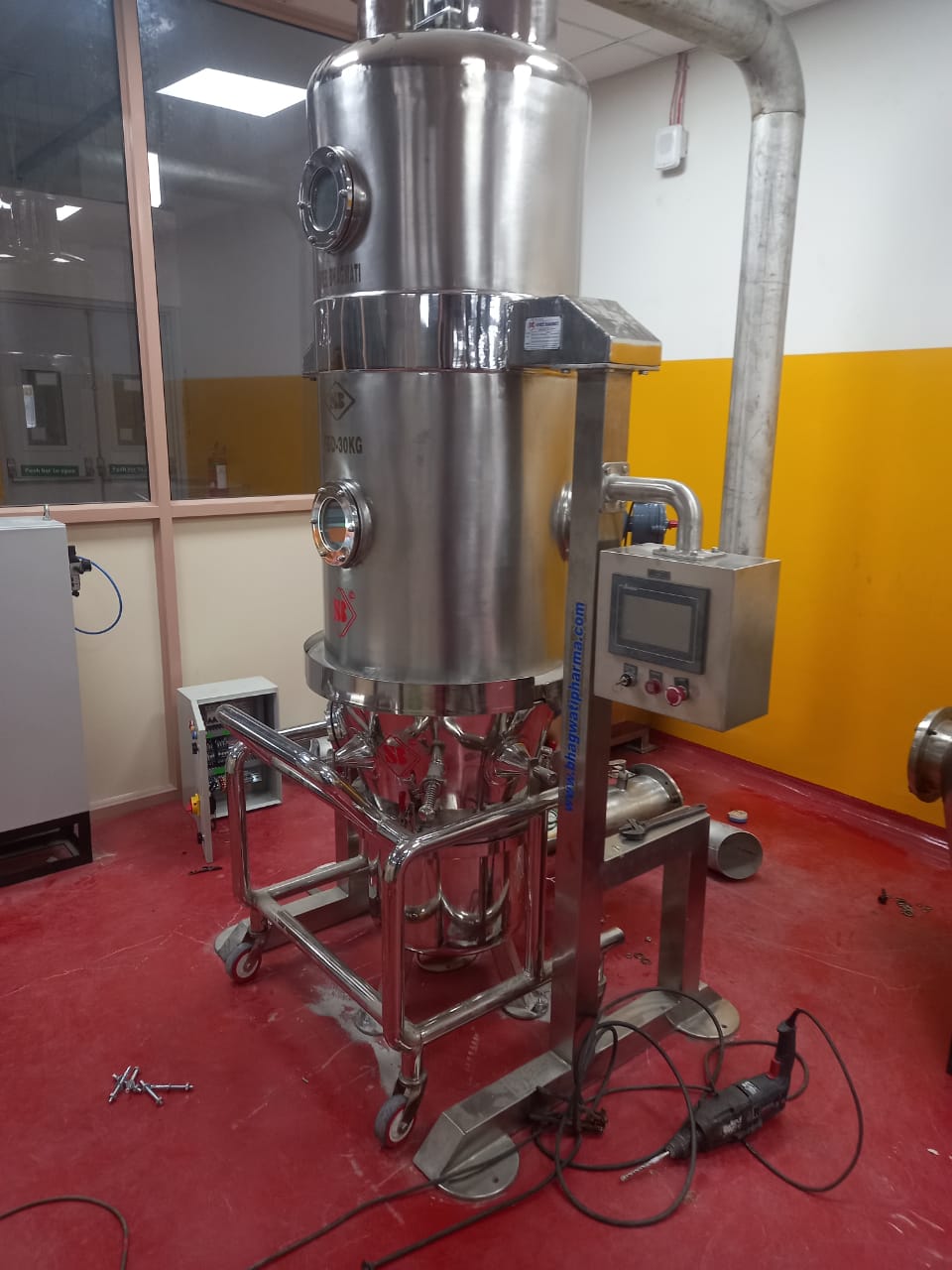
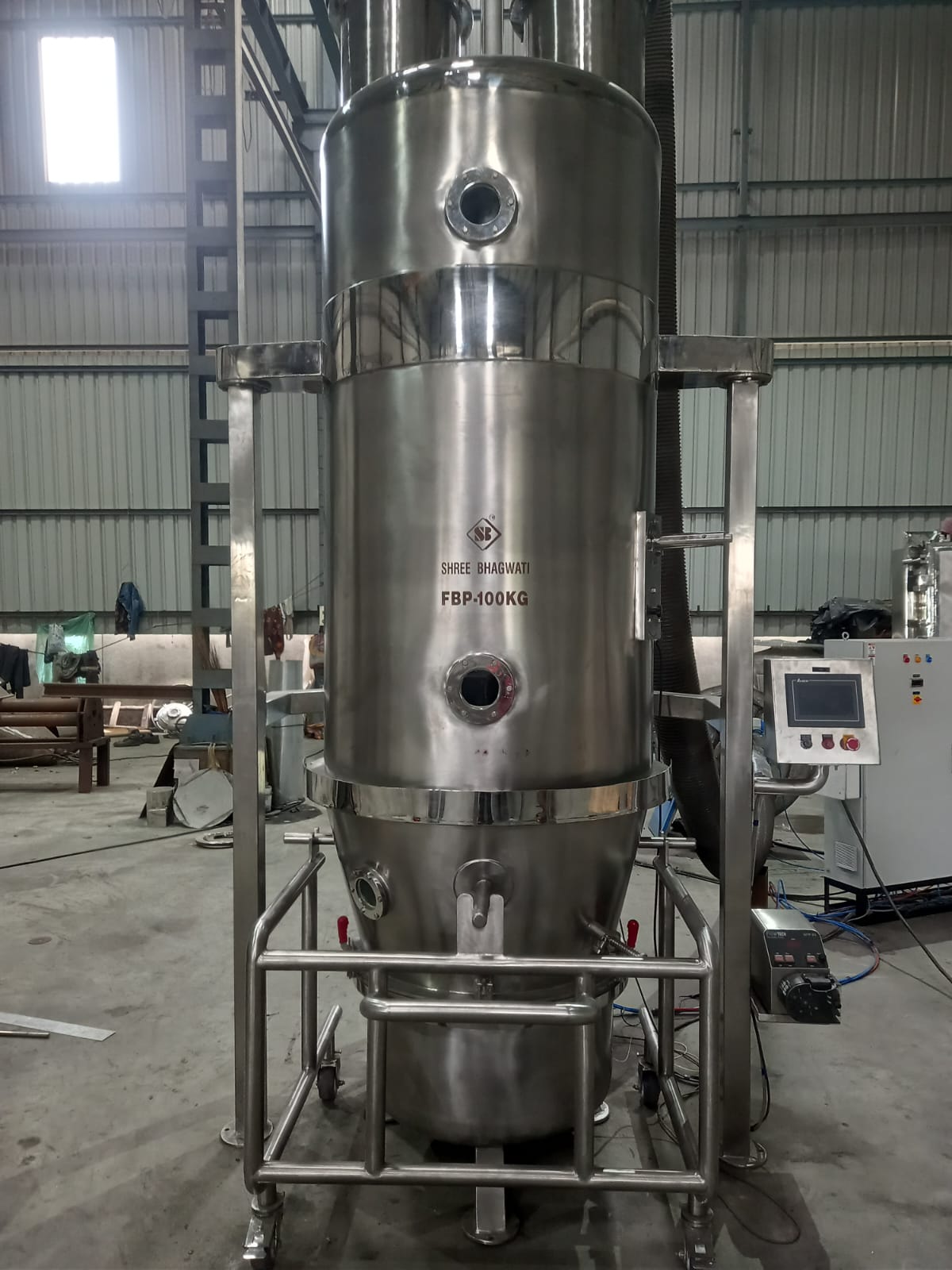
Biofuel Industry
There are few types of bulk materials or granulates that cannot be dried using fluidized bed technology. Its limits are only defined by the product itself, its particle size and shape, its moisture content, its heat and mass transfer properties and its granulation characteristics.
Designed for the pharmaceutical, agricultural, chemical and food industries, it is especially well suited to sticky or temperature sensitive products since it allows drying at temperatures much lower than boiling point. The fluidized bed can be aided to achieve its fluidization by mechanical vibration, gas pulsation or a circulating flow of the feed.
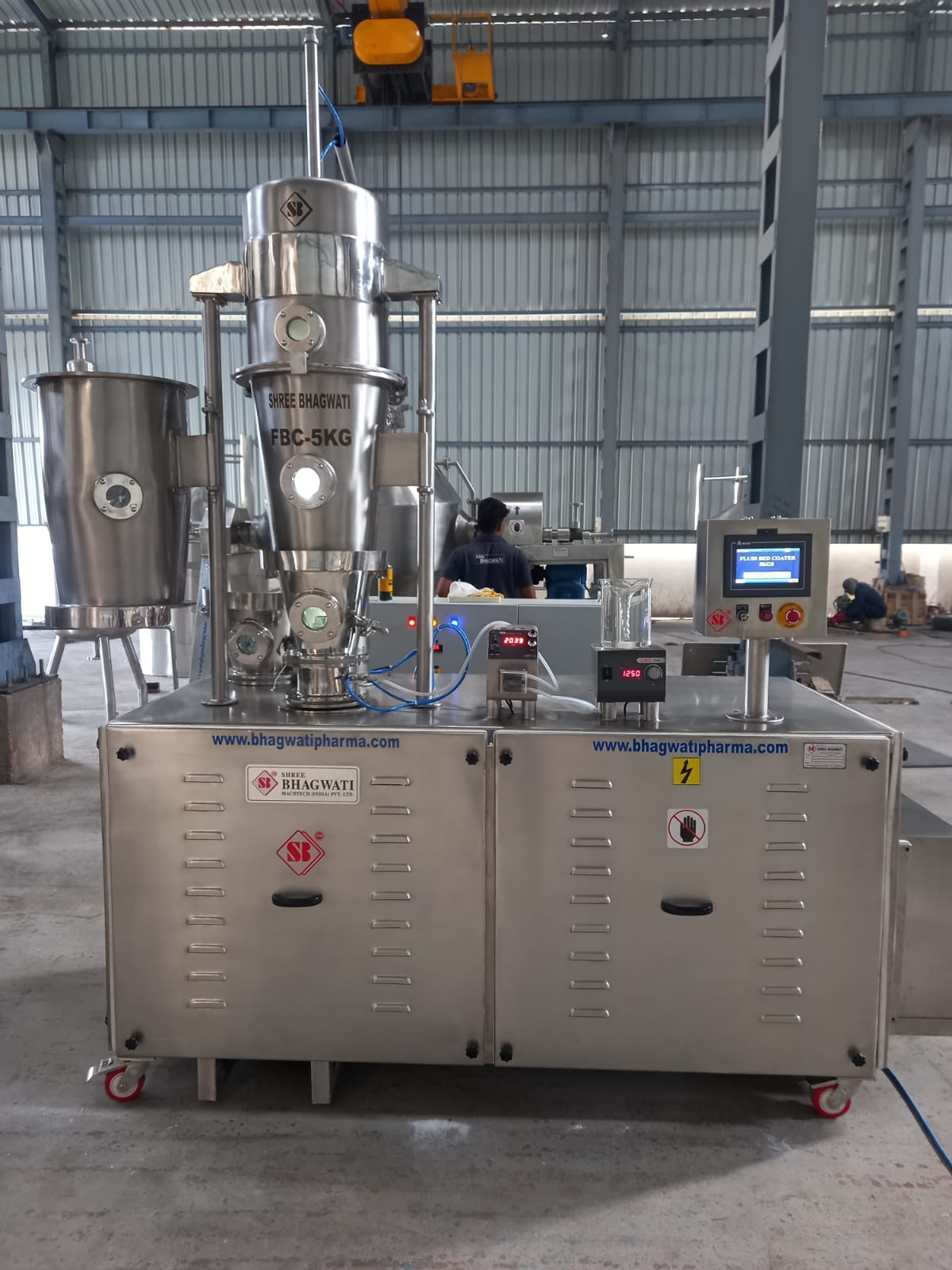
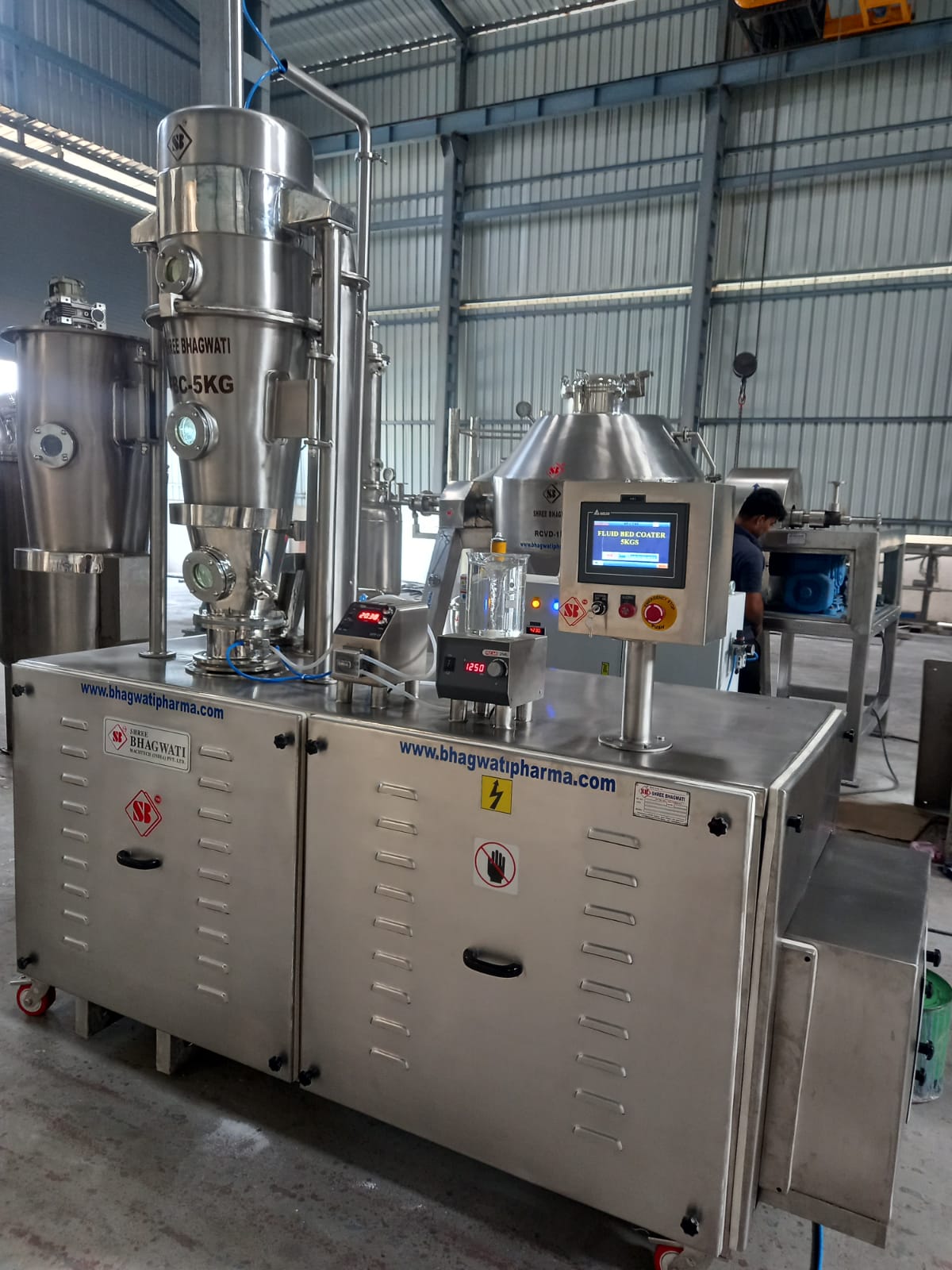
Despite its many advantages, the fluidized bed dryer does have some drawbacks. High pressure drops result as a consequence of the need to suspend the entire bed in gas which equally leads to high energy consumption. They also require increased gas handling due to extensive recirculation of exhaust gas for high thermal efficiency operation. Moreover, it can be difficult to achieve good fluidization and flexibility particularly if the feed is too wet. This may lead to attrition and in some cases, the formation of fine particles that agglomerate.
Pharmaceutical Industry
Fluid bed dryers play a crucial role in the pharmaceutical industry, particularly in the production of granules, powders, and pellets. The controlled and uniform drying achieved by fluid bed dryers ensures consistent product quality and enhances the effectiveness of subsequent processing steps.
The fluid bed dryer’s minimal moving and sanitary conditions make it ideal for pharmaceutical processing, particularly in the granulation process of tablet manufacturing. It is an effective alternative to time-consuming tray drying and ensures a more controlled and gentle drying environment for heat-sensitive products.
It is also a more cost-effective option because of the intimate air-to-product contact. It also minimizes degradation reactions by avoiding excessive heat exposure and exposing the product to oxygen at low levels.
The equipment can be designed with a variety of heating processes depending on the application, from direct gas combustion to waste heat recovery and steam generation. It can also be constructed from stainless steel, making it a safe choice for the processing of food and chemicals. The equipment should be highly customizable, allowing the user to adjust the parameters of the machine as needed. This helps them achieve the results they want, without wasting energy. It should also be able to handle large volume loads.
















